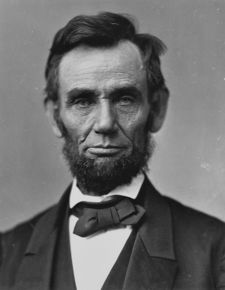Benyahim Lafvsa
Benyahim Lafvsa | |
|---|---|
 Chancellor Lafvsa in 1863 | |
| 1st & 3rd Chancellor of Migaza | |
| In office 1865–1873 | |
| Preceded by | Office Established |
| Succeeded by | Ibrahim Katz |
| In office 1877–1885 | |
| Preceded by | Ibrahim Katz |
| Succeeded by | Abram Elkayam |
| Personal details | |
| Born | 1809 |
| Died | 1899 (aged 90 years) |
| Nationality | Migazan |
Benyahim Lafvsa
Early Life and Career
Benyahim was born during the Constitutional Monarchy period of Migaza. His parents owned a farm in southern Migaza which he worked at until he was 12 years old. He didn't have any formal primary school, and his mother taught him reading and arithmetic. He had three younger siblings. A brother years his junior, a brother 6 years his junior, and a brother 9 years his junior. At 12 years old, both his parents died of Angolstichia, during the famed outbreak of 1800. He and his next oldest brother, Sali, were rejected by their aunt because they were too old. They were separated from the youngest two and sent to the Fasal House, an orphanage in the Migazan capital city of Nelphia. Both boys were tormented and mistreated in horrific ways that left Benyahim physically and mentally challenged for the rest of his life. After 1 year of being in the orphanage, Sali died of malnutrition and Sepsis. Beyahim left the orphanage at age 15 and began working in a blacksmith shop and later operating machinery in a factory. He joined the local chapter of the Society of Unified Smithers (SUS) and became under the mentorship of the labour society leader Hamsa Edelman. Labour societies during this time were outlawed, but their existence was growing in prevalence as a way of social engagement and community unification. Edelman was appointed as the Nelphia City Commissioner in
Without attending , his social status, and lack of familial connections, Benyahim was never going to be accepted into university. He crafted a plan and forged his way into Migaza National University, the top school in the nation. He graduated in three years, obtaining a degree in civil law.
He wrote The Case of a National Identity, which was blacklisted for many years. It outlined Migazan exceptionalism and advocated for democracy and rule of law. It outlined steps to move out of the Constitutional Monarchy to a Republic in a way peaceful way. Because the work was blacklisted, Lafvsa had to deliver his book orally in the form of stump speeches and speaking tours. He also authored Beyond Human Nature in 1868, which was about the moral authority of humans to run the world, grounded in the philosophy of Jursan morality and explained compassion, moral rule of law, moral responsibility for humans to show compassion. It argued that the government stood to best suit as many people, that it should uphold the moral code, and became a model for the modern worker-centered government. It advocated for a democratic people's republic and the concept of Migamoralism, which focuses on workers' rights and the morality of the collective.